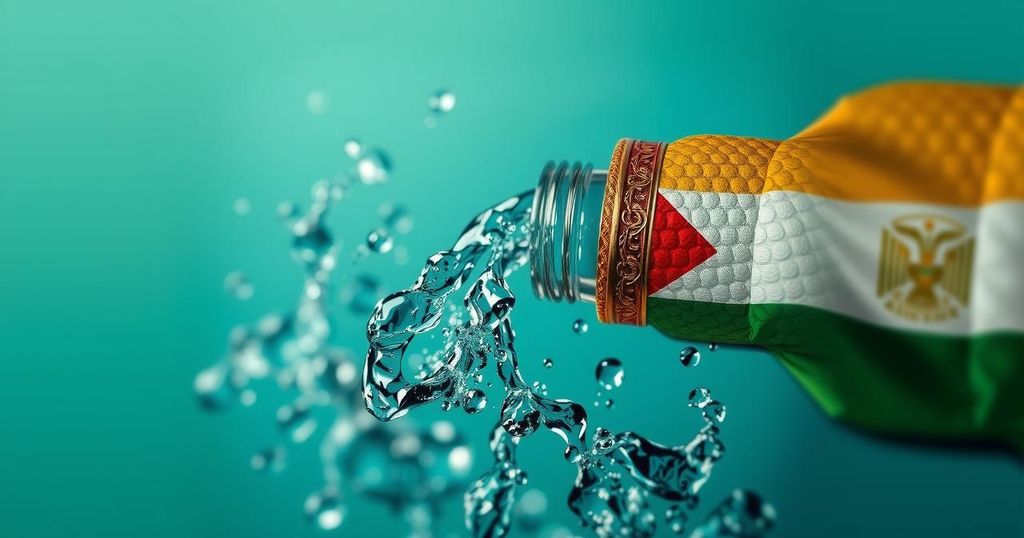Sudan and Egypt Address Nile Water Sharing Amidst New Treaty Challenges

Sudan and Egypt discussed Nile water sharing in light of a new treaty, which both countries oppose for violating international law. The treaty enables a Nile River Basin Commission, including several countries, but lacks representation for Egypt and Sudan’s interests. Both nations continue to oppose Ethiopia’s Grand Ethiopian Renaissance Dam (GERD).
On November 4, 2024, Sudan’s new Foreign Minister, Ali Youssef, engaged in discussions with his Egyptian counterpart, Sameh Shoukry, regarding the contentious Nile water sharing framework amidst the implementation of a new regional treaty. This conversation, which was conducted via phone, came in the wake of a Nile Basin treaty that has drawn criticism from both Sudan and Egypt for its perceived disregard for international legal standards. The treaty, which permits the formation of a Nile River Basin Commission, was joined by South Sudan in July and includes other Nile Basin nations such as Ethiopia, Rwanda, and Uganda. Foreign Minister Youssef communicated Sudan’s dedication to collaborative efforts with Egypt concerning Nile River matters. Conversely, concerns were raised regarding the representation within the newly formed commission, which both nations argue does not adequately represent the interests of all Nile Basin states. Additionally, both Sudan and Egypt maintain their opposition to Ethiopia’s Grand Ethiopian Renaissance Dam (GERD), which has been a source of significant regional tension as it approaches completion. Recent reports indicate that several ministers from Nile Basin countries convened in Addis Ababa to deliberate the establishment of the commission and are expected to visit the GERD site soon.
The Nile River is a vital resource for the countries it traverses, particularly for Egypt and Sudan, both of which heavily rely on its waters for agriculture, drinking water, and overall sustainability. The establishment of a Nile River Basin Commission aims to facilitate cooperative water management among the Nile Basin nations. However, the recent treaty has garnered opposition from Egypt and Sudan, which argue that it undermines established international water rights and fails to represent their interests and concerns comprehensively, particularly in light of the advancing GERD project.
In summary, the discussions between Sudan’s Foreign Minister Ali Youssef and Egypt’s Sameh Shoukry exemplify the ongoing dialogue and tension regarding Nile water sharing amidst a newly effective treaty. While both nations emphasize their commitment to cooperation, their dissent towards the Nile Basin treaty and the GERD indicates persistent regional challenges. The outcome of these negotiations and the actions of the Nile River Basin Commission will be closely monitored by the involved nations as they navigate their water rights and resource management.
Original Source: sudantribune.com








